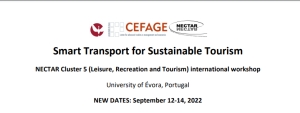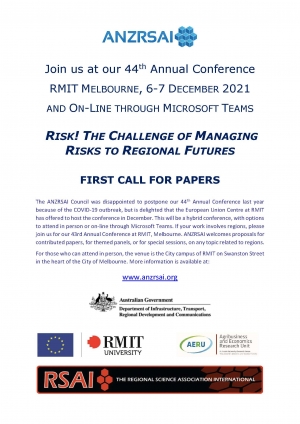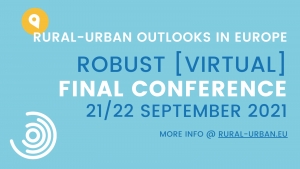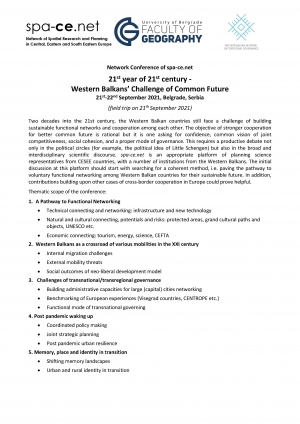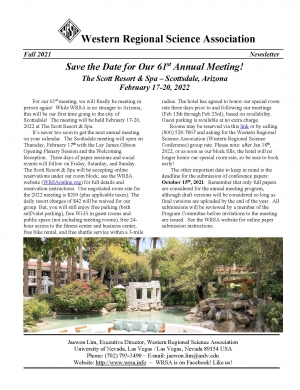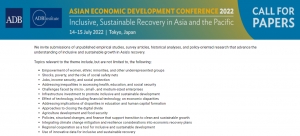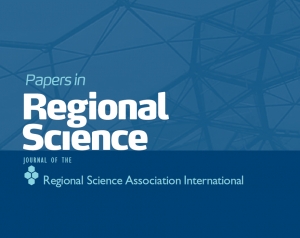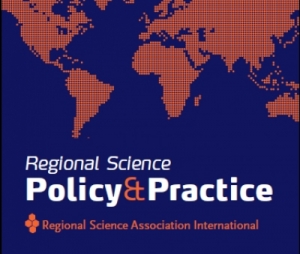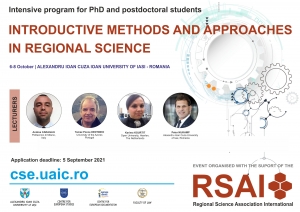Council
Elisabete Martins
Call for Papers | NECTAR CL 5 international workshop on "Smart Transport for Sustainable Tourism", September 12-14, 2022
Please find attached the call for papers from NECTAR Cluster 5 (Leisure, Recreation and Tourism) for an international workshop on "Smart Transport for Sustainable Tourism". This meeting will be held in Évora (Portugal) during September 12-14, 2022.
The deadline for submission of abstracts is July 15, 2022.
More information can be found in the attached call.
CALL FOR PAPERS | 44th ANZRSAI Conference | 6-7 December 2021, RMIT MELBOURNE and ON-LINE
The 44th annual conference of ANZRSAI will be hosted by the European Union Centre at RMIT University.
The venue is the RMIT City Campus in Melbourne.
The dates are 6-7 December 2021.
The ANZRSAI Council was disappointed to postpone our 44th Annual Conference last yearThe ANZRSAI Council was disappointed to postpone our 44th Annual Conference last yearbecause of the COVID-19 outbreak, but is delighted that the European Union Centre at RMIThas offered to host the conference in December. This will be a hybrid conference, with optionsto attend in person or on-line through Microsoft Teams. If your work involves regions, pleasejoin us for our 43rd Annual Conference at RMIT, Melbourne. ANZRSAI welcomes proposals forcontributed papers, for themed panels, or for special sessions, on any topic related to regions.For those who can attend in person, the venue is the City campus of RMIT on Swanston Streetin the heart of the City of Melbourne. More information is available at: www.anzrsai.org
The First Call for Papers is available here.
Further information about the conference is available here.
ROBUST Final Conference, Rural-Urban Outlooks in Europe, 21-22 Sep 2021 (Online)
ROBUST Final Conference
Tue 21 Sep 2021 to Wed 22 Sep 2021
Online (Zoom)
The ROBUST project will hold its Final Conference online, wrapping up the project’s activities and presenting its key findings, takeaways and outlooks on the future of rural-urban governance.
Over the course of the two-day program, speakers will take a closer look at the successes and challenges of the ROBUST Living Lab model, presenting valuable lessons that can be taken forward in the future. Panel sessions will also focus on the mounting evidence in support of shifting to a well-being economy, and how this shift can strengthen the relationships between rural and urban areas.
More information at: https://rural-urban.eu/events/robust-final-conference
Network Conference of Spa-ce.net - 21st year of 21st century, titled Western Balkans’ Challenge of Common Future, 21-22 September 2021, Belgrade, Serbia
The Network of Spatial Research and Planning in Central, Eastern and South Eastern Europe, is organizing the Network Conference of Spa-ce.net - 21st year of 21st century, titled Western Balkans’ Challenge of Common Future, taking place from 21st-22nd September 2021, Belgrade, Serbia.
More information is available at: http://www.spa-ce.net/pdf/2021/Spa-ce-net-Call-for-Papers-2021.pdf. The preliminary programme of the Conference is attached.
WRSA: Fall 2021 Newsletter + 2022 Annual Meeting in Scottsdale, AZ (near Phoenix)
The Fall 2021 Newsletter is attached and contains everything you'll need to start planning our 61st Annual Meeting in Scottsdale, AZ (near Phoenix). For those wanting the information now, here are the key details:
Paper Submission: Papers should be submitted to the WRSA website by October 15, although as in past years the "deadline" will be extended until the end of November. Only full papers (draft format acceptable) will be accepted. The program review committee will review and invitations will be sent to the accepted papers. Draft papers are sufficient for the October deadline, so long as we have a complete version in hand by the end of January 2022.
Hotel Reservations: Our negotiated room rate at the Hilton is $209/night (plus applicable taxes). Full details and a reservation link are posted on our website (link here). The daily resort charge of $42 will be waived for our group. But, you will still enjoy free parking (both self/valet parking), free Wi-Fi in guest rooms and public space (not including meeting rooms), free 24-hour access to the fitness center and business center, free bike rental, and free shuttle service within a 3-mile radius. The hotel has agreed to honor our special room rate four days prior to and three days following our meeting (Feb 13th through Feb 23th), based on availability. Please note: after January 18, 2022, the hotel will no longer honor our special room rate! Be sure to book early!
Tiebout Prize: Advisors and Ph.D. students alike are reminded that October 15 is the hard deadline for submissions for the 36th Annual Tiebout Prize in Regional Science. Visit the WRSA website for full details about Tiebout Prize. Papers co-authored with faculty advisors are acceptable, however, the primary author must meet the Tiebout student requirements and the bulk of the substantive work and contribution of the paper must have come from the student. REQUIRED: Submitted pdfs of the paper must include a letter from the faculty advisor confirming that these requirements have been met.
Student Conference Assistants: WRSA is seeking several students to assist with meeting registration in Pasadena. In exchange for 8-10 hours of volunteering at the registration desk, students will receive a complete rebate of their preregistration fees (worth $150, to be processed as a refund following the meeting) and potentially discounted staff rooms at the conference hotel. Contact me via This email address is being protected from spambots. You need JavaScript enabled to view it. if you're interested.
Session Chairs and Paper Discussants: Planning to come to Hawaii and won’t be presenting a paper? We are always VERY happy to assign you to session chair or paper discussant duties if you’re willing. Just drop us an email (This email address is being protected from spambots. You need JavaScript enabled to view it.) to let us know your preferences and availability constraints.
Call for Papers: Asian Economic Development Conference, 14-15 July 2022

The Asian Development Bank and the Asian Development Bank Institute will hold the inaugural Asian Economic Development Conference on 14–15 July 2022 in Tokyo. The objective of the conference is to promote the discussion of high-quality, frontline research on Asian development among social scientists, development practitioners, and policy makers.
The fallout from the COVID-19 pandemic threatens to undermine the decades of progress the region has made in raising living standards and eliminating poverty. The theme of the conference, “Inclusive, Sustainable Recovery in Asia and the Pacific,” will showcase cutting-edge research that explores how the efforts to rebuild after the crisis can also be opportunities to make development more inclusive and help achieve climate goals. Keynote speakers include Rema Hanna (Harvard University), Xin Meng (Australian National University), and Yasuyuki Sawada (University of Tokyo).
We invite submissions of unpublished empirical studies, survey articles, historical analyses, and policy-oriented research that advance the understanding of inclusive and sustainable growth in Asia’s recovery. Topics relevant to the theme include, but are not limited to, the following:
• Empowerment of women, ethnic minorities, and other underrepresented groups
• Shocks, poverty, and the role of social safety nets
• Jobs, income security, and social protection
• Addressing inequalities in accessing health, education, and social security
• Challenges faced by micro-, small-, and medium-sized enterprises
• Infrastructure investment to promote inclusive and sustainable development
• Effect of technology, including financial technology, on economic disparities
• Addressing implications of disparities in education and human capital formation
• Approaches to closing the digital divide
• Agriculture development and food security
• Policies, structural changes, and finance that support transition to clean and sustainable growth
• Integrating climate change mitigation and resilience considerations into economic recovery plans
• Regional cooperation as a tool for inclusive and sustainable development
• Use of innovative data for inclusive and sustainable recovery Interested authors must register and submit a paper by 14 January 2022 here. The paper should include authors’ affiliations and contact information.
Submissions will be evaluated in terms of originality, analytical rigor, and policy relevance in the Asian context. Authors of accepted papers will be contacted by 15 March 2022.
Authors of accepted papers will also have the opportunity to submit their papers for a Special Issue of the Asian Development Review (Guest Editor: Xin Meng, Australian National University).
KEY DATES
Paper submission deadline: 14 January 2022
Decision notifications: 15 March 2022
Registration period: March–April 2022
Draft program: May 2022
Conference: 14–15 July 2022
ADVISORY BOARD
Asian Development Bank
Joseph E. Zveglich, Jr.
Shu Tian
Gemma Estrada
Asian Development Bank Institute
Tetsushi Sonobe
Peter Morgan
Daniel Suryadarma
Position Opening - Senior Lecturer - Department of Social Sciences, Illinois Institute of Technology, Chicago
Title: Senior Lecturer – Department of Social Sciences, Illinois Institute of Technology, Chicago
Introduction: Founded in 1890, Illinois Institute of Technology was born different. It was built on the promise set forth in minister Frank Wakely Gunsaulus’ “Million Dollar Sermon” to provide access to higher education for students from all different backgrounds and to make a difference in the world through technology-oriented education. This guiding mission and purpose—where students, including those underrepresented in technology, could prepare for meaningful roles in a changing industrial society and achieve professional and economic advancement—remains just as relevant today. Thus, diversity and inclusion are part of the day-to-day experience at Illinois Institute of Technology and the centerpiece of its culture. Because of this, Illinois Institute of Technology is home to a diverse and global student population, and is committed to providing opportunities to enhance the diversity of its faculty and staff. To this end, Illinois Institute of Technology strongly encourages applicants from all backgrounds to apply for this position, especially those underrepresented in the field, including, but not limited to, African Americans, Latinx, Indigenous peoples and others.
Position Description: The Illinois Institute of Technology seeks an individual for a full-time, 9-month position as a Senior Lecturer in the Department of Social Sciences (https://www.iit.edu/social-sciences). Appointment periods are 3-5 years and renewable. The preferred start date is January 3, 2022.
We seek candidates to teach a broad range of social science courses and to potentially develop inter/crossdisciplinary programs with the engineering and science departments. The successful applicant is expected to be a dynamic and engaging lecturer and demonstrate potential for overall excellence in teaching.
Candidates are expected to demonstrate best teaching practices. Lecturers in the department teach three courses per semester in the fall and spring terms, become members of some service committees, mentor and advise undergraduates and help with recruitment activities. Opportunities for summer teaching employment and potential administrative duties may also be available for well qualified candidates. Annual salary is negotiable and dependent upon the candidate’s previous experience and qualifications.
Qualifications
- A Ph.D. or foreign equivalent in political science, sociology, geography, public policy, applied economics, urban planning or a closely related field
- Previous teaching experience is desirable but not required
Instructions
- Please submit the following application materials by mail to: Prof. Jeff Terry, Interim Department Chair, Illinois Institute of Technology, 3101 S. Dearborn St., Chicago, IL 60616 or by email to This email address is being protected from spambots. You need JavaScript enabled to view it. and provide names/contact information for three references who will be prepared to submit letters of recommendation upon request.The application should include:
- Cover letter addressing the candidate’s qualifications
- Curriculum vitae
- Statement of teaching philosophy and interests including any available evidence of teaching excellence. If applicable, please include any experience in teaching, mentoring or engaging in research with a diverse population of students.
Review of applications will begin upon receipt and the position will remain open until filled. Complete applications received by October 1, 2021 will receive priority consideration. If you have a question about the details of this search or position, please contact the Interim Chair, Prof. Jeff Terry at This email address is being protected from spambots. You need JavaScript enabled to view it..
The Illinois Institute of Technology is an EEO/AA/Title VI/Title IX/Section 504/ADA/ADEA employer; we are committed to enhancing equity, inclusion and diversity within our community. Illinois Tech seeks applications from all individuals regardless of race, color, sex, marital status, religion, creed, national origin, disability, age, military or veteran status, sexual orientation, and/or gender identity and expression. All qualified applicants will receive equal consideration.
Call for Applications - Editor-in-Chief, Papers in Regional Science (PiRS)
Call for Applications - Editor-in-Chief,
Papers in Regional Science (PiRS)
The Regional Science Association International (RSAI) seeks candidates for the position of editor-in-chief of one of the association’s official journals, Papers in Regional Science (PiRS). PiRS is a quarterly, peer-reviewed journal dedicated to advancing fundamental knowledge in regional science from its multiple theoretical and methodological perspectives, and is one of the highest ranked journals in the field of regional science. The journal encourages high quality scholarship on a broad range of topics in the field of regional science.
Candidates should be RSAI members with a wide knowledge of urban and regional phenomena as well as distinguished records of scholarly contributions internationally. Candidates should also possess strong intellectual vision, leadership and organizational abilities, and experience relevant to editing a journal in the field of regional science. The appointment will start January 2022 and continue for a three-year renewable term.
The editor’s primary responsibility is to continue to enhance the journal’s quality, reputation, and scholarship. The editor will be expected to strengthen the journal’s competitive position in support of RSAI’s worldwide mission. The editor will also demonstrate visionary leadership in developing editorial policies and initiatives that stimulate novel ways to theorize and analyze the changing reality of urban and regional environments so as to represent the full spectrum of high-quality research conducted worldwide in the regional science community.
The editor will recommend an international team of associate editors and a book review editor to help administer the peer review process, promote excellence in content and advance editorial initiatives.
The PiRS editor reports to RSAI through the RSAI Council. RSAI provides financial support to the editorial office for management of the journal.
Detailed information on responsibilities and on the process for applying for the editor-in-chief position is available below.
Specific duties of the Editor-in-Chief and journal editorial office include:
- Maintaining and updating the aims and scope of the journal, editorial policies, and guidelines to authors.
- Overseeing the manuscript peer review process through the publisher’s on-line submission portal in an unbiased, confidential, and timely manner.
- Checking proofs and revisions to proofs.
- Preparing and forwarding accepted manuscripts to the publisher’s production department.
- Coordinating standards and practices across managing editors and managing the workload of each member of the editorial team.
- Maintaining close and regular contact with the publisher on marketing and production matters.
- Initiating and responding to correspondence with authors, managing editors, and reviewers.
- Recruiting, selecting, and appointing PiRS board members that reflect the diversity of regional science and addressing any performance issues.
- Soliciting guest issues, selecting guest editors, and providing advice and assistance to guest editors.
- Adhering to the page budget and financial structures set by RSAI. RSAI and the publisher are responsible for managing production, layout, printing, subscriptions, pricing and funding initiatives for society publications.
- Appointing associate editors and a book review editor (to be approved by RSAI Council). The editorial team (editor and associate editors) will be comprised of RSAI members with high stature and respect in the community, and with the expertise to manage the breadth of regional science.
- Serving as a non-voting ex officio member of RSAI Council and other regional science governing bodies.
- Chairing the jury of the annual Martin Beckmann Prize for the best article published in PiRS and managing the nomination and selection procedure.
- Reporting to RSAI Council through regular reports at Council meetings.
- Reporting to the journal editorial board through board meetings held at least once a year.
Application process:
Interested individuals should submit an application package that includes:
A succinct letter of interest and qualifications, containing an indication of the editorial team;
A vision statement for the next three to six years of publication of PiRS;
A curriculum vitae;
The names and contact information of three references.
Applications packages must be received by October 15, 2021.
All requested information should be submitted by e-mail as a single PDF file to Ms. Elisabete Martins at the address This email address is being protected from spambots. You need JavaScript enabled to view it..
RSPP Call for Papers | Special Issue on Sustainable Development of Afghanistan
Special Issue of Regional Science Policy & Practice on Sustainable Development of Afghanistan
Abdul Shaban, Professor, School of Development Studies, Tata Institute of Social Sciences, Mumbai, India (This email address is being protected from spambots. You need JavaScript enabled to view it.)
Rohina Zaffari, Assistant Professor, Department of Social Work, University of Kabul, Kabul, Afghanistan (This email address is being protected from spambots. You need JavaScript enabled to view it.)
Introduction
Regional Science Policy and Practice aims to publish scientific papers that examine people and places interaction with sound replicable methods and effective policies for regional sustainable development.
The regional sustainable development of Afghanistan matters to Afghanis and the World and therefore it is a very relevant object of study from Regional Science Policy and Practice perspective, for regional scientists in that region and around the world. Furthermore, this aspect becomes more relevant when most of the scientific work carried out on the country comes from political science, that focus spatial conflicts, and not from regional science that focuses on people and place interaction.
The Background
Human capital, democracy, peace, economic openness, and physical resources play determining role in the development of any country or region. Afghanistan is endowed with about US $ 3 trillion worth of mineral resources (Reuters 2021) and it is located in the crucial crossroad of China, India, Central Asia, and the Middle East. Nevertheless, the country has been caught in internecine warfare over the last several decades. As such it is a mineral resource-rich and central country, but poor economically. The country is known as the roundabout of Asia and had been on pathways of silk-route. Afghanistan as the country was born in 1880 as a consequence of the delineation of boundaries by the British and Russian empires. Historically, it has been a region of many kingdoms and a pathway of many civilizations. It has witnessed a multitude of religions and ideologies like Zoroastrianism, Vedic, etc, which are embedded into even today’s dominant conservative Islamic culture. The country is inhabited by more than 50 ethnic groups with their own cultures and traditions, crafts, and economic ways of life. Some of such major ethnicities are Pashtuns, Tajiks, Hazaras, Uzbeks, Turkmen, Aimak, Pashayi, Baloch, Pamiris, and Nuristanis. The country has a rich history of philosophy and literature of its own. Major Sufis of Islam, including Rumi, who gave the message of love and peace to the world, were born in the country. However, in the 19th and 20th Centuries it became a buffer zone between ideological battles of the West and Russia on the one side, and Islam and Mongols, Chinese and Indians on the other. The country became a battleground of conflicting ideologies. During the reign of Emir Abdur Rahman (1880-1901) the British and Russian officially defined the boundaries of what is today’s Afghanistan. With the third Anglo-Afghan war (1919), the British relinquished the control of foreign policy of Afghanistan on 19th August 1919, which is celebrated as Independence Day of Afghanistan.
King Amanullah Khan put emphasis on women's education, secularization, and modernization of Afghanistan. Given the development in Turkey under Ata Turk and a tour by King Amanullah to Turkey, Article 68 of Afghanistan’s First Constitution (adapted through Loya Jirga) made elementary education compulsory. Such progressive gender policies have been adopted much later by many countries. The government also banned hijab and opened many co-education institutions which angered the Islamic clerics leading to the Afghan civil war (1928-29).
King Mohammad Zahir Shah (1933-1973) continued the reform and liberalization and even introduced a bi-cameral system to promote democracy with both the shares of elected and selected representatives. This led to the growth of political parties and the People's Democratic Party of Afghanistan (PDPA) was one of them which allied with the USSR.
Mohammad Sardar Daoud Khan in 1973 captured the power from Zahir Shah due to economic and political instability and abolished the monarchy declaring Afghanistan as Republic with himself as its first president. He also abolished the Constitution of 1964.
In 1978, PDPA leaders in a bloody coup captured the power by overthrowing the Government. The country was renamed the Democratic Republic of Afghanistan (DRA), which lasted in different forms till 1992. As a communist government, they advocated the liberation of women. But because of factional fights and instability, the Soviet Union intervene militarily on December 27, 1979, in Afghanistan. In response to this, the USA, Saudi Arabia, and Pakistan started arming Mujahideen. Billions of dollars were spent on this. It is estimated that about 2 million Afghans got killed by the USSR forces till it withdrew in 1989. This also created the first Afghan refugee crisis as about 6 million people fled to neighboring countries and other developed countries.
The country then plunged into a civil war between different factions and powers during 1992-1996. The neighbouring countries had their vested interests in the instability of the country as they saw unstable Afghanistan and their influence important to influence other neighbouring countries.
In 1996, the Taliban occupied Kabul and a large part of Afghanistan. They implemented conservative Islamic policies and led to the compromise of women’s freedom and enormous hardship to already war-torn people. Some ethnic groups of the country became the target of the new regime. Arab fighters also partnered with the Taliban under the leadership of Osama bin Laden. They named Afghanistan as the Emirate of Afghanistan.
After the 9/11 incident, the USA and the British militaries attacked the Taliban Government. This led to the formation of the Karzai Government. These 20 years saw significant development whether it was related to infrastructure, education or people’s democratic freedom. However, the Taliban again has regained Kabul in 2021.
Current Developmental Situation
Notwithstanding its geopolitical significance and the rich mineral resources, the political and social instabilities have acted as barriers to the economic development of the country. The war over the years and conservative social practices have kept Afghanistan economically deprived. It is not surprising that today’s Afghanistan is one of the least developed countries of the world. As per the World Bank (2020), scarce data reveal that about 38% of the population of the country lived below the poverty line in 2010. Women and children are the major victims of the internecine wars. As per the UNCTAD (2020), the population of Afghanistan is about 39 million while the net migration in 2020 was -315 thousand (the World Bank 2020). The per capita income in current US $ was 461 (UNCTAD 2020).
Figure 1: Per capita real GDP (in US $ at 2015 prices) of Afghanistan
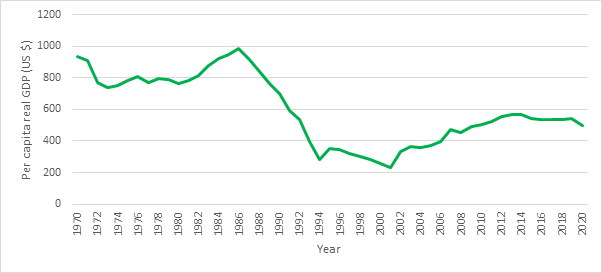
Source: Based on data from UNCTAD (2021).
Figure 2: Annual growth rate of per capita real gross domestic product (at constant 2015 US dollars) of Afghanistan.
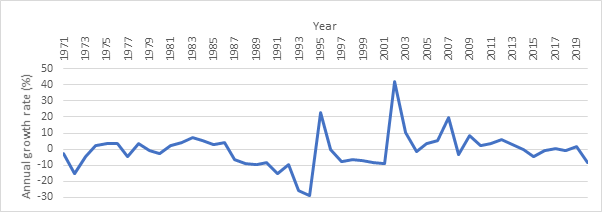
Source: Based on data from UNCTAD (2021).
In fact, the real GDP growth of the country has been in negative during 2015-2020. Above this has been the rising inflationary pressure on the economy. The country experienced consumer price index growth of 5.6% during 2019-20. Total merchandise export was only of US $ 783 million in 2020 and the major partners in export have been UAE, India, Pakistan and China. In contrast to export, the import was estimated to be US $ 6.5 billion, leading to a current account deficit of more than -20.0% of the country’s GDP.
Figure 3: Trade in merchandised goods and services of Afghanistan
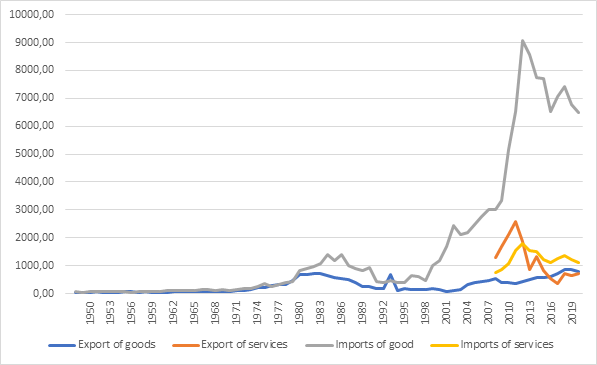
Source: Based on data from UNCTAD (2021).
There are hardly any major heavy industries in the country. The urban centres are economically weak and mainly serve as administrative or religious service towns. However, the carpet and creative economy of the country is well known around the world. This may be one of the potential sectors for economic development.
Figure 4: Urbanization population as percentage to total population of Afghanistan
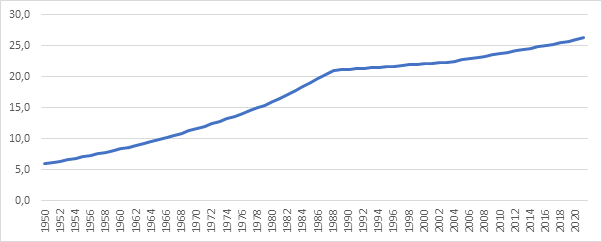
Source: Based on data from UNCTAD (2021).
In 2019, the gross secondary enrolment rate was only 55%, while the mean year of schooling was only 4 years. The HDI value was 0.511 in 2019 and thus rank of the country was at the bottom, that is 169 out of 189 countries (UNDP 2020). There is a dismal presence of the banking system, and it is difficult for entrepreneurs to access formal credit.
Another major developmental concern is the situation of women. They have been placed over the years under increasing holds of patriarchy. Their educational, social, economic, and political lives are placed in disarray.
The proposed special Issue of RSPP
Given, the difficult political history and development situation, Afghanistan requires deeper analysis of its existing situation and human practices to learn and track itself on the path of sustainable development. The major challenge before the country is how to evolve a war economy into a peaceful and sustainable economy. The proposed special issue of Regional Science Policy & Practice will attempt to understand the possibilities of development of Afghanistan in the context the regional history and current reality, with the following major subareas (though not limited to),
- From war to peace, prospects for regional development in Afghanistan
- Regional philosophy of peace and development and spatial practices
- Economic structure and potentials of growth
- Inequality, poverty, and potential for sustainable community development
- The role of trade, especially the regional trade (India, Pakistan, China, Iran, and Central Asian Countries), and investment in development,
- Urban centers, regional growth (including rural-urban), and development
- Educational Institutions, skills, and human capital
- Women and development
- Sustainable Development Goals in the Regions of Afghanistan
Expression of interest (EoI) by prospective authors
We invite an abstract of 250-500 words from prospective authors highlighting the research problem, data, methods, major findings, and policy suggestions. The last date of submission of the abstract is 30 November 2021. Author(s) of papers will be communicated about the suitability of their abstracts, with suggestions if any.
The last date of submission of the final paper at the Journals website (as per the format recommended by the Journal for the process of peer review) is 31 March 2022.
For the paper submission to the journal and stylesheet, authors can consult the Journal site: https://rsaiconnect.onlinelibrary.wiley.com/journal/17577802
The abstract can be emailed to: This email address is being protected from spambots. You need JavaScript enabled to view it.
References
Reuters (2021). Factbox: What are Afghanistan's untapped minerals and resources? https://www.reuters.com/world/asia-pacific/what-are-afghanistans-untapped-minerals-resources-2021-08-19/
The World Bank (2020). Country Profile - Afghanistan. World Development Indicators database. https://databank.worldbank.org/views/reports/reportwidget.aspx?Report_Name=CountryProfile&Id=b450fd57&tbar=y&dd=y&inf=n&zm=n&country=AFG
UNDP (2020). Human Development Report 2020: The Next Frontier: Human Development and the Anthropocene. http://hdr.undp.org/sites/default/files/Country-Profiles/AFG.pdf
UNCTAD (2021). UNCTADSTAT. https://unctadstat.unctad.org/
INTRODUCTIVE METHODS AND APPROACHES IN REGIONAL SCIENCE: Intensive program for PhD and postdoctoral students | 6 - 8 October 2021 | Alexandru Ioan Cuza University of Iasi, Romania
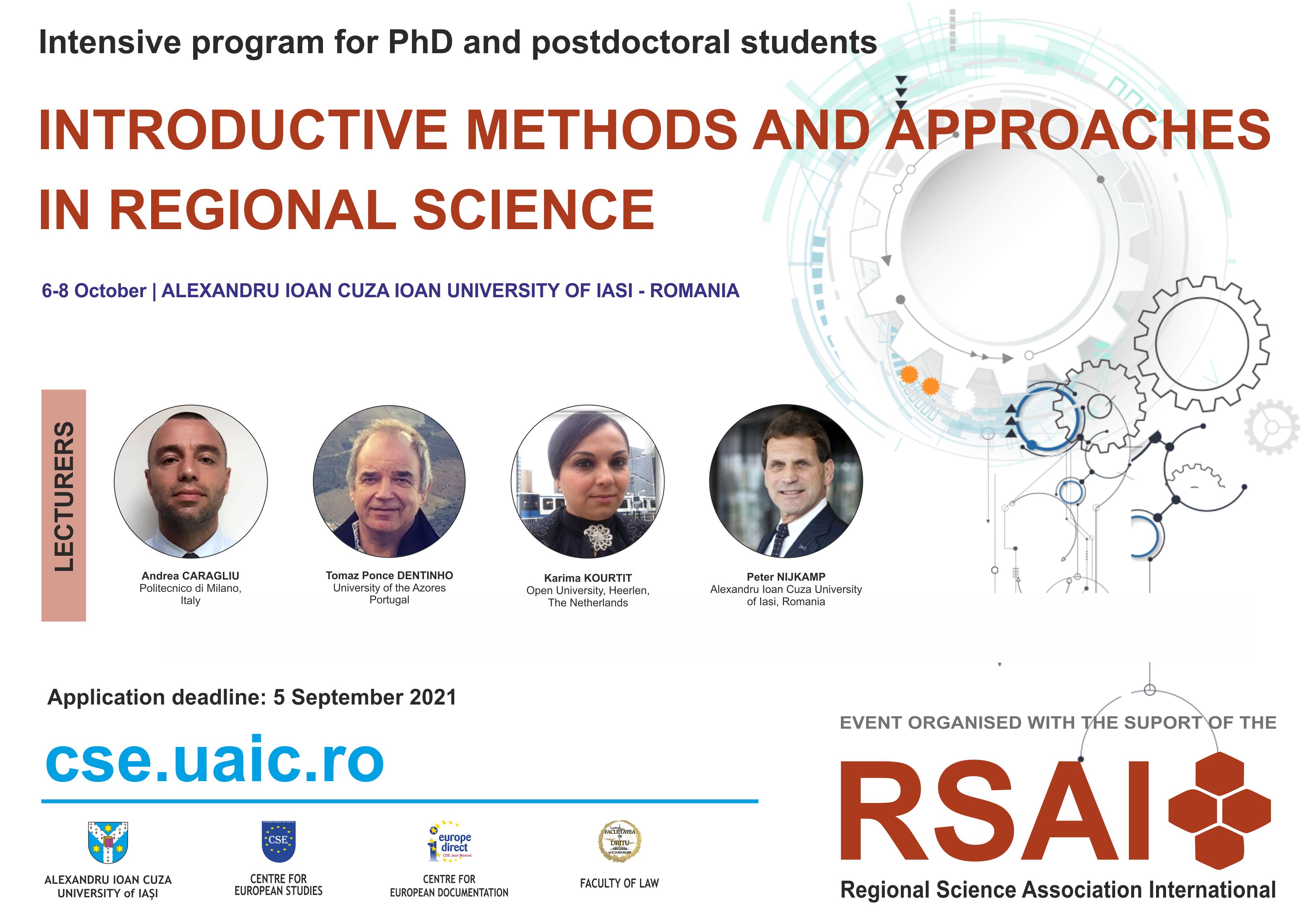
The Centre for European Studies of Alexandru Ioan Cuza University of Iași, Romania will organise an intensive program for nurturing the future generation of researchers in regional science between 6-8 October. The event, supported by the Regional Science Association International (RSAI), will focus on sharing new methodological approaches in regional science methodology and on developing particular abilities and competences required for PhD and postdoctoral students. It will address foundations of qualitative and quantitative analysis and identify the best publishing strategies for young researchers. The main aim of the program is to develop a more informed and conscious use of diverse methodological techniques that can foster and enrich research in regional science and to ensure the enhancement of methodological skills and research competences of the future generation of researchers in regional science. The workshops will address a solid grounding in the concepts, practices, and procedures underlying research, as well as advanced skills for conceptualization, assessment, and analysis across cases and/or over time.
Applications submission period: 15 July - 5 September 2021
Eligibility: The workshops are designed for PhD students and postdoctoral students with less than 3 years of experience following their PhD defence from fields related to regional science (geography, economy, urban planning and other related fields). The event addresses participants from Europe with a particular focus, but not exclusively, to Romania, Republic of Moldova, Ukraine, Bulgaria, Georgia and Turkey. The maximum number of participants accepted is 25 (maximum 5 per country).
The Intensive program has no participation fee. The organisers will cover for: • Lunch and coffee break throughout the event • Teaching materials • Accommodation for four nights in double rooms
More details https://cse.uaic.ro/en/nurturing.htm
About Us
The Regional Science Association International (RSAI), founded in 1954, is an international community of scholars interested in the regional impacts of national or global processes of economic and social change.

